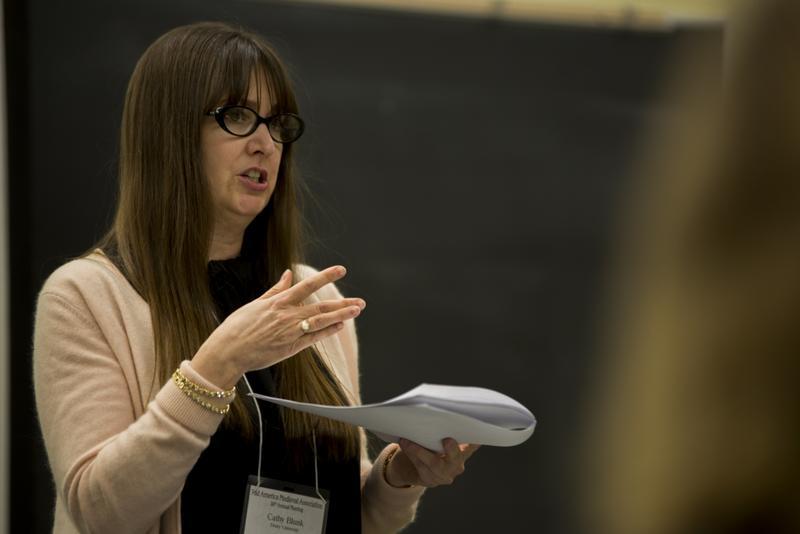Rafiq Ramadan was the only MU undergraduate who presented at the 38th annual Mid-America Medieval Association Conference on Saturday.
The annual conference is a place for community members and students interested in medieval studies to learn about aspects of the time period’s culture, said Lois Huneycutt, the association’s president and MU associate professor of medieval history.
Professors from around the Midwest region — and one from Poland — gathered in Tate Hall to discuss topics pertaining to this year’s theme of “Global Middle Ages.”
Ramadan’s presentation was one that compared similar pieces of literature from two continents.
Although the biology and religious studies double major graduated in December, Ramadan spent his last semester in religious studies assistant professor Rabia Gregory’s “Angry Theologians” class researching and writing about John Foxe’s 16th-century work “Book of Martyrs.”
In his presentation at the conference, Ramadan contrasted Foxe’s book and the updated 18th-century American edition by Paul Wright.
“For (Foxe), it was a historical record,” Ramadan said. “The one we have by Paul Wright — he updated it with information from the last two centuries, but he also reworked it to be what he calls a ‘Christian martyrology,’ a book to organize everything to do with martyrs.”
Gregory, who is the association’s secretary, said she was impressed by Ramadan’s paper and presentation and subsequently asked him to submit it to the conference lineup of undergraduate presentations.
“Because Rafiq had done work in (Ellis Library’s) Special Collections before with other classes, he did a really great paper for that class,” Gregory said. “So I contacted him and asked him if he’d be interested because we wanted to have an undergraduate research session.”
The undergraduate research session was only one of the many sessions at the conference, which has been held at MU only twice. The conference is alternately held in a Midwestern state one year and at the conference’s place of origin, UM-Kansas City, the next year, Huneycutt said.
Huneycutt said she, Gregory and Johanna Denzin, a Columbia College professor and the association’s treasurer, selected “Global Middle Ages” as this year’s theme because people traditionally think of only European culture in that time period.
“The Middle Ages is often seen as something that only affected Europe,” Huneycutt said. “And we’re looking at global connections — Asia, Africa — and looking at how those places in premodern times interacted with Europe.”
Gregory proposed the theme because at the time she was shaken by the news of Mali rebels burning medieval manuscripts.
“Huge amounts of medieval manuscripts had been destroyed,” Gregory said. “And I was still feeling sort of upset about not knowing anything about that culture, even though it’s a period I work on. I wanted to get involved and make this conference a place to talk about a wider medieval world that we don’t always give attention to.”
After selecting a theme, a call for papers was sent out through various LISTSERVs and publications, to which many people responded.
“We choose from among the proposals the ones that we think will be the most useful to our audience and put together a session from them,” Huneycutt said.
As the primary organizers of the conference, Gregory, Denzin and Huneycutt met through the local network of medieval enthusiasts.
Denzin said that when she realized the conference was going to be held in Columbia this year, she thought it would be a good opportunity for MU and Columbia College to work together.
“Regardless of where we teach, medievalists sort of find each other,” she said. “As medievalists, we’re sort of a community in that sense.”














